Foundation for Rural & Regional Renewal (FRRR)
Four Victorian philanthropic organisations have joined forces in an exciting $5 million partnership with the Foundation for Rural & Regional Renewal (FRRR) that will strengthen the capacity and resilience of communities over the next five years.
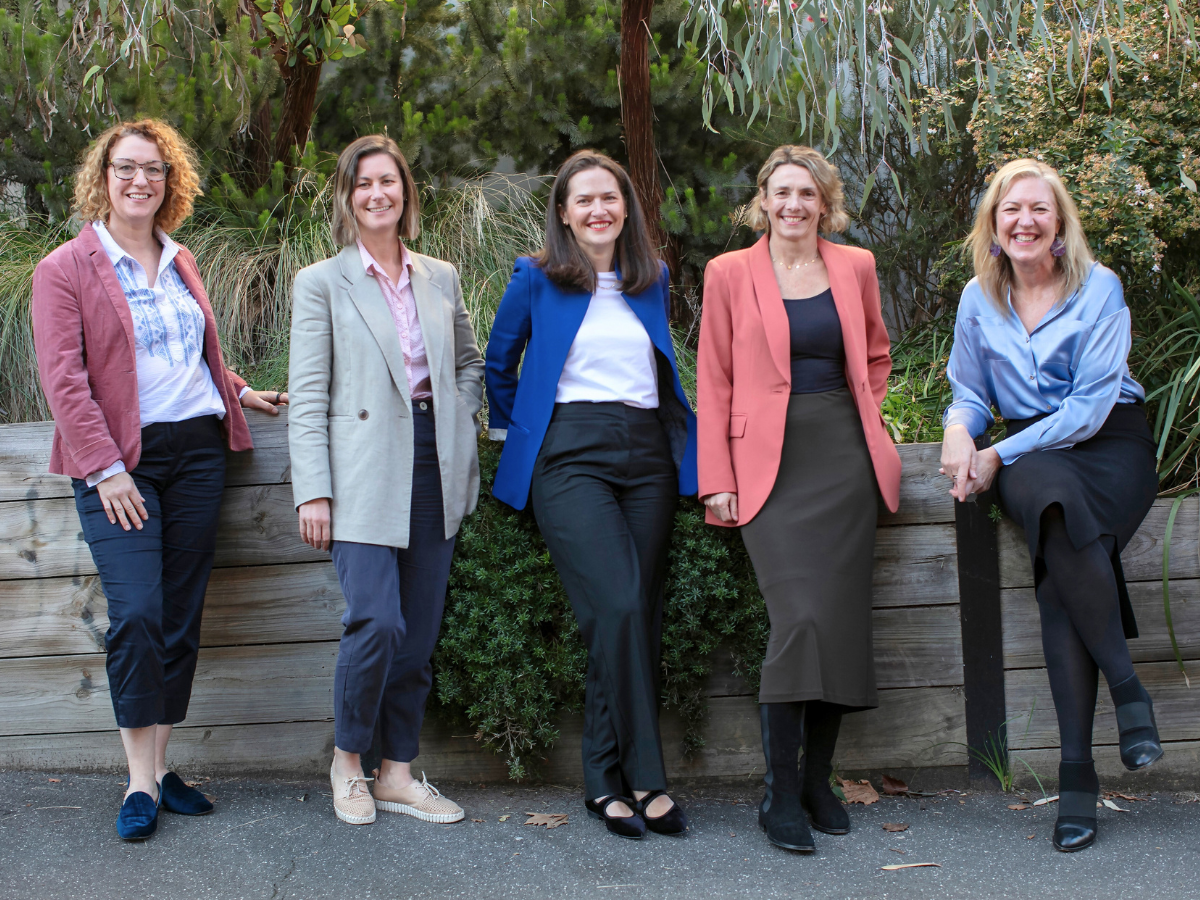
Three Victorian communities will be named later this year, following a detailed process involving needs analysis, mapping key issues, causes of disruption and the funding landscape, and an exploration of community readiness for the investment.
The partnership comprises the Helen Macpherson Smith Trust, the Jack Brockhoff Foundation, The Ross Trust, and William Buckland Foundation. FRRR will deliver the program, following the success of its similar Investing in Rural Communities Futures program (IRCF) in NSW over the past five years.
The funding will enable local not-for-profits (NFPs) to become more confident and collaborative in their approach to improving and sustaining the vibrancy, resilience, and liveability of their communities, ultimately enabling them to thrive, not just survive, especially during times of natural disasters.
“Investing in and strengthening the social and economic fabric of Victorian rural communities fosters long-term resilience,” says the CEO of FRRR, Natalie Egleton. “We know that our model can deliver these outcomes, and the multi-year model builds a whole-of-community approach.”
The $5 million funding will be used to employ local facilitators, deliver capacity building activities for the local NFPs such as governance training, volunteer development, marketing and fundraising support, and events. Funds will also be allocated to the three communities via grants for priorities and for organisational capacity building. Evaluation is central to the program.
The NSW program
The NSW program started in 2018 after FRRR recognised that many grassroots organisations were ‘locked out’ of philanthropy and often unable to access opportunities to invest in their own organisational capacity due to their size, distance, financial capacity, and lack of staffing.
“Most of the NFP work that happens in small towns is volunteer run and there just isn’t any money or resources to help them be sustainable,” Natalie said. “Local leaders know what is going to make the biggest difference in their community and we knew that supporting local solutions would be key.”
The program commenced in Junee, Leeton, and Nambucca Valley with the support of Vincent Fairfax Family Foundation. The Snow Foundation and Bendigo Bank then joined to enable FRRR to take the program to Ulladulla, Batemans Bay, Nowra, and Bay & Basin. The Australian Government provided additional funding to expand the program in the Shoalhaven region and launch the program in Bega through their Black Summer Bushfire Recovery Program.
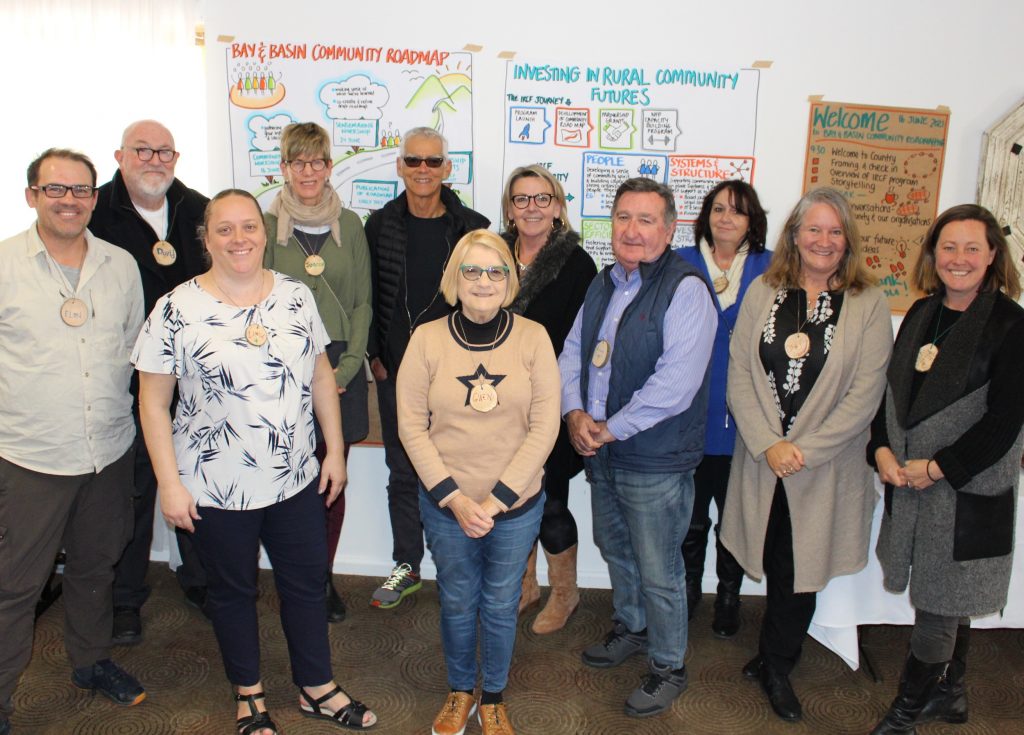
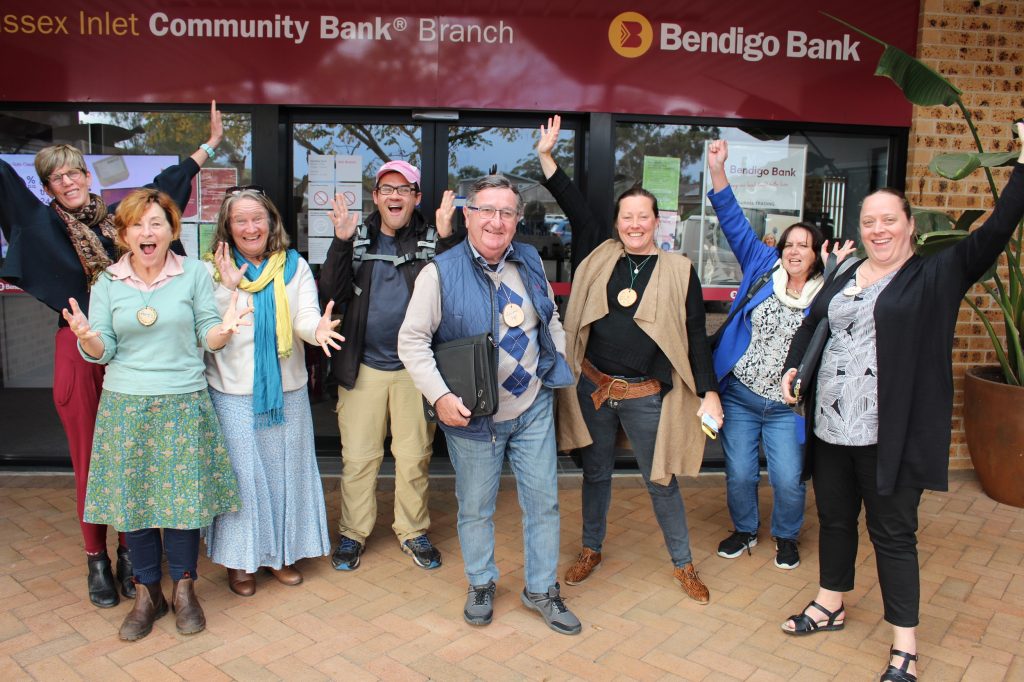
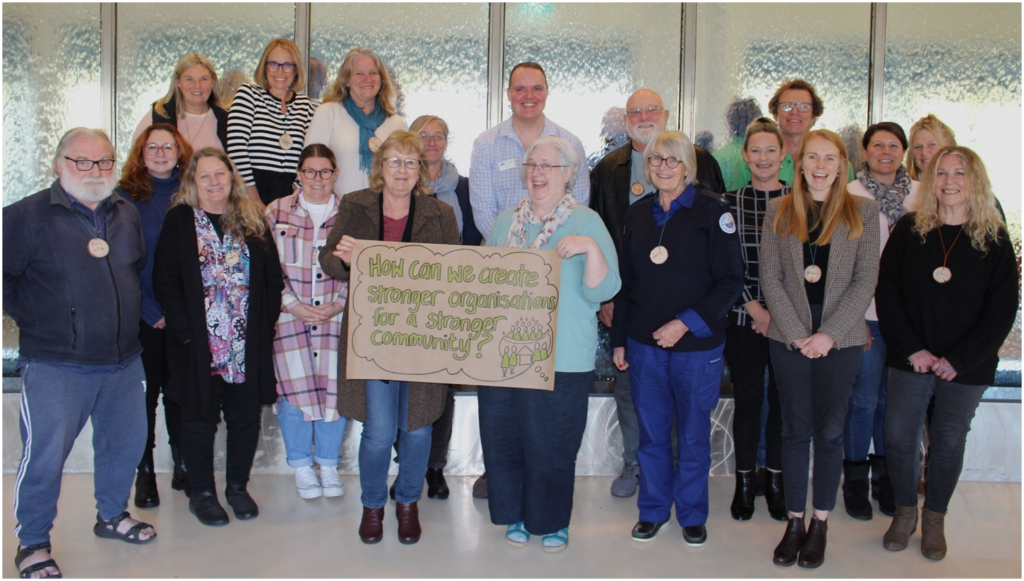
Evolution of the Victorian partnership
The plan to bring a similar program to Victoria began in late 2022 after The Ross Trust began discussions with FRRR and the Helen Macpherson Smith Trust. Conversations then began with the Jack Brockhoff Foundation and William Buckland Foundation. Importantly, the leaders in all these organisations had strong existing relationships and numerous granting collaborations with each other, as well as with FRRR.
“I could see that this program was about building the skills, resources and capacity of local not-for-profits – and that it was working,” said Sarah Hardy, the CEO of The Ross Trust. “It was also clear that any Victorian partnership would need a commitment of $5 million to get off the ground. That is a lot of money for any one mid-sized philanthropic, when we all have ongoing projects.”
Sarah said the positive and trusting relationships between the five organisations meant they were able to openly discuss whether it was a project that their trustees and directors would support.
The CEO at the Helen Macpherson Smith Trust, Debra Morgan, said the early conversations and resulting partnership benefited from like-minded organisations working together.
“We realised early that we couldn’t do anything this significant alone, and that working together would help us to affect better and longer-term change,” Debra said. “This collaboration sets a new bar in how we work together, and it’s certainly the longest-term project we have funded under our new strategy.”
Louise Kuramoto, the CEO of the Jack Brockhoff Foundation, said that it was the first time, other than a commemorative grant, the foundation had made a five-year commitment to a project.
“The philosophy behind this program is not unusual, but the amount and duration are,” Louise said. “The solid track record of FRRR gave all four funders the confidence to invest at such a scale. It’s wonderful that we can come together to support communities and the people in them.”
For the Grants Lead of William Buckland Foundation, Ferdi Hepworth, the program perfectly aligns with her organisation’s long commitment to country Victorians.
“We have had a long partnership with FRRR and more recently we’ve been funding a program where FRRR distributes small grants to communities, and we had already been talking about how we could better support them,” Ferdi said. “It was very easy to say yes to being part of this partnership.
“We often see governments and big business leading change, but it’s the people in the community who best know the ingredients required to help that community thrive. This project supports those people with the skills, knowledge, and confidence to work together to achieve change.”
After many emails, online and in-person meetings, visits to NSW communities, and discussions with their trustees and directors, the four funders set themselves a deadline of June this year to see if they could raise the $5 million to commence the program in July 2025. By April, they had done it.
“For four mid-sized philanthropic organisations to raise $5 million when we already have current commitments shocked us all, but in a good way,” Sarah said.
How the program will work in Victoria
FRRR will study past granting trends and community profiles and will map issues and disruptions occurring or on the horizon, as well as the funding landscape, to select the three communities. The process will also include community consultation, with a shortlisting process that will invite expressions of interest. Given the program is grounded in deep collaboration and co-design with each community, it is vital that there is a sense of readiness to embark on the five-year partnership.
Once communities are selected, a locally based community facilitator will work with the local NFP sector to scope priorities, gaps and opportunities that will be collated into a sector roadmap. The roadmap, which will be refreshed annually, will be the framework for activating capacity building activities and funding, and for monitoring progress, celebrating change, and adjusting priorities as needed.
Natalie from FRRR said she was confident many Victorian communities would be enthusiastic about the opportunity, adding that, like in NSW, it was likely the communities would be at very different starting points.
“Success is turning out to be different in each community, which is fine because the indicators we are interested in all focus on changes in mindset and sector collaboration to drive new and better opportunities for their communities – and that has been a major success,” Natalie said.
FRRR will employ a program manager who lives in Victoria and is familiar with key concerns and issues in the state. Local facilitators will also be employed in each community. Over time, it is expected that more than 20 people will be employed in the program. Staff and volunteers will benefit from training and professional development and possibly partnerships with councils, TAFEs and universities.
Deb Samuels is the People Portfolio Lead at FRRR and will oversee the Victorian project.
“We now have five years of NSW evaluation data and interviews and the recurring theme is that people in the communities feel much more empowered to make decisions and collaborate,” Deb said. “If they know a large grant opportunity is coming up, they know who to call to say, ‘let’s pool our efforts to apply’.”
Deb cited examples of success that could be replicated in Victoria, such as one NFP leader rallying to halt the closure of a local bank branch that was relied upon by vulnerable residents, and another leader now running for mayor.
“Local leaders involved in the IRCF program have shared they would not have had the confidence to do things like that in the past,” Deb said. Young people can also engage with the program and see themselves as an important part of the NFP sector.
“One of the best things somebody said to me is that ‘the funders believed in us and invested in us, and now we believe in ourselves and what we can do’.”
Not-for-profit organisations (NFPs) across the South Coast are sharing more than $360,000 across 27 projects that will strengthen their capacity to support their local communities.
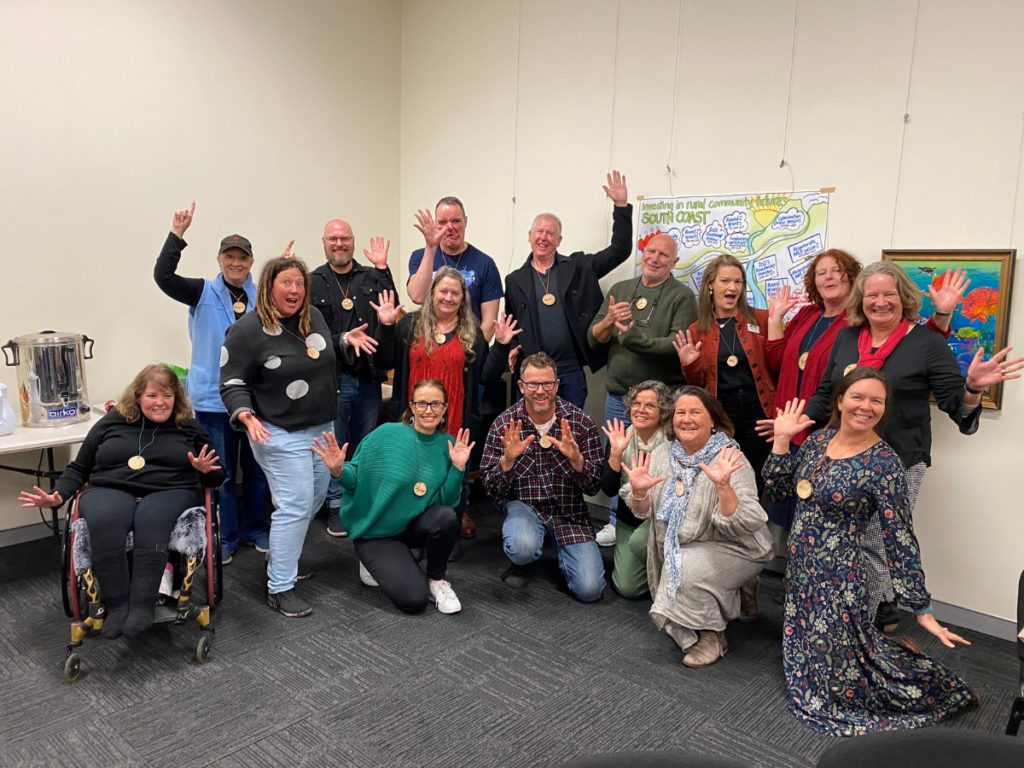
The funding comes through FRRR’s Investing in Rural Community Futures (IRCF) program, in partnership with The Snow Foundation and Community Enterprise Foundation, which has been operating across the South Coast since 2020.
Carolyn Ardler, FRRR’s Program Manager for the IRCF South Coast program, said that the premise of the IRCF program is to encourage local groups to engage in greater collaboration, skill-building and, where possible, share resources and learnings for the benefit of the whole community.
“The IRCF program is all about helping local groups to be better able to support the communities and causes they were set up to assist. It involves a mix of grants directly to individual NFPs and workshops and training (usually led by a local group on behalf of other NFPs), all supported by a facilitator in each community who works alongside the groups. The program is entirely community driven, starting with a co-designed community roadmap that’s updated regularly, which helps FRRR and our partners prioritise where to direct investment in each community.
“Over the last three years, there’s been significant investment in strategy and planning, and now we’re seeing more projects around efficiencies, systems and processes, alongside continued investment in people and their capacity. As we head toward the culmination phase of the program, we’re also seeing communities establishing the systems and processes to sustain the networks, connections and collaborative ways of working they’ve established in recent years, so that’s exciting,” Ms Ardler said.
The Snow Foundation was the first donor partner to support the program on the South Coast and local resident and Chairman of the Foundation, Terry Snow, said that it’s so rewarding to see the long-term changes that have come about.
“While there’s still a few months until the program formally concludes, it’s been wonderful to see how well the local not-for-profit and community groups have embraced the chance to come together, agree where they could all benefit from upskilling and sharing their experiences, and to then put it into action. There are several organisations that are now much stronger and they are better able to support not only their chosen beneficiaries, but also other not-for-profit organisations. We’re delighted to have been part of this and look forward to seeing these projects that are being announced today also make an impact,” Mr Snow said.
Bay & Basin projects
In the Bay & Basin area, seven projects are sharing $76,749, thanks to the support of Bendigo Bank’s Community Enterprise Foundation. The focus in this round of funding was strongly on youth-aligned organisations and projects. This part of the South Coast is one of the more recent areas to come on board the IRCF journey, so the groups are still building connections and working closely with the local IRCF facilitator.
David Impey, CEO of the Community Enterprise Foundation, said it’s really pleasing to be able to support more projects that will strengthen the future of these local organisations and the region.
“It’s exciting to see a diverse range of projects continuing to come forward from local NFPs. This round, we are pleased to see several that focus on engaging young people, which is great to see as they are critical to ensuring a strong future in these regions. But there are also a number of projects that will enhance the capacity of these organisations, such as better systems and processes, upskilling staff or volunteers and creating assets and resources that can be shared across NFPs. This goes right to the heart of ensuring strong communities and we are delighted to be part of it.”
Nowra projects
Ten projects in and around Nowra are sharing $114,911, thanks to support from The Snow Foundation. This is the final round of grants for Nowra and we’ve seen increased networking activities and discussions about how to collaborate on projects. This tranche of projects has a strong focus on supporting people and developing systems.
Batemans Bay projects
This is also the final round of funding for Batemans Bay and five projects will share $94,946, with support from The Snow Foundation. With these grants there is a focus on creating efficiencies and most projects are collaborative, with more than one organisation benefitting.
Ulladulla projects
Thanks again to The Snow Foundation, five projects are sharing $76,125, most of which focus on enhancing administration systems and procedures to improve capacity and better support the community.
The full list of grant recipients and their projects are below.
| Organisation | Project | Location | Grant | |||
|---|---|---|---|---|---|---|
| BATEMANS BAY | ||||||
| Anglican Diocese of Canberra and Goulburn Parish of Moruya | Moruya Commons Community Hub - Fostering Participatory Culture Foster collaboration, reducing duplication and strengthening networks across the not-for-profit sector by providing IT equipment and governance for a shared office space. | Moruya | $20,546 | |||
| Arts Council of Eurobodalla Inc | SASI - Shared Administrative Systems Implementation Ease volunteer working conditions through employing a co-ordinator to develop procedures and policy manuals for three organisations - Arts Council, River of Art Festival and Sustainable Agriculture Eurobodalla (SAGE). | Moruya | $30,000 | |||
| Southcoast Health and Sustainability Alliance | Governance In Action - Enhancing Sustainability and Collaboration for NFPs Support organisation to proactively tackle climate change, with training for volunteer committee in financial management, governance and administrative systems. | Batemans Bay | $14,400 | |||
| Sustainable Agriculture and Gardening Eurobodalla | Policies, Procedures and Capacity Building for SAGE Volunteers Support development of strong local food systems, offering events and training opportunities for community, by establishing an event management / coordinator position. | Moruya | $10,000 | |||
| The Family Place Inc | Building a Resilient Future: Advancing Sustainable Growth through Fee for Service Expansion Expand access to support services by growing organisation's capabilities, through increased staffing resource to enable CEO to focus on building sustainable OOHC model. | Moruya | $20,000 | |||
| BAY & BASIN | ||||||
| Bay & Basin Community Resources Limited | Work Re-Design to Thrive and Grow Upskilling staff to re-design workflows and tasks to increase the efficiency of a community organisation. | Bay & Basin region | $29,734 | |||
| Changing Tide Wellness Ltd | Community Connect: Empowering Wellness Creating an accessible, inclusive website, so those with disabilities can more easily access information about appropriate services. | Bay & Basin | $5,426 | |||
| Community Champions - SP&SGB Inc | Community Champions - Bay & Basin Community Growth and Empowerment Workshops 2023/24 Encourage collaborative community conversations to explore ways to better support the community across the not-for-profit sector. | St Georges Basin / Sanctuary Point | $4,000 | |||
| Noah's Ark Centre of Shoalhaven Inc | Building Bay & Basin Administration support for a service provider that is focused on children with disabilities and special needs, so they can expand and embed their services. | Sanctuary Point | $7,488 | |||
| Sanctuary Point Community Pride Incorporated | Sanctuary Point Nexus: Fostering Pride and Unity Bolster community engagement and pride in Sanctuary Point by creating a comprehensive visual of community assets. | Sanctuary Point | $5,650 | |||
| Sussex Inlet Foundation for Community Development | Building Youth-focused Services for Sussex Inlet Encourage youth engagement and involvement in the community through the development of a Youth Advisory Group. | Sussex Inlet | $9,500 | |||
| yiliga-miraral Wellbeing Team Vincentia High School P&C Association | walawaani-ngarn Into The Future Measuring the impact of a program that provides wellbeing support to students and families to help attract additional funding, so it can continue. | Vincentia | $14,951 | |||
| NOWRA | ||||||
| Beyond Empathy Limited | BE Studios Capacity Building Project Strengthen organisational capacity in Nowra and the Shoalhaven region by engaging someone to develop a business plan, marketing strategy and promotional materials to support employment pathways for young artists. | Nowra | $14,144 | |||
| Kangaroo Valley Voice Incorporated | Kangaroo Valley Voice Capacity Building and Longevity Project Enhance organisational capacity and sustainability by employing part-time staff and developing a website for The Kangaroo Valley Voice newspaper to better connect the community. | Kangaroo Valley | $20,000 | |||
| Noah's Ark Centre of Shoalhaven Inc | Our Workforce - A New Way Boost organisational capacity by creating a tool to help a children and family service provider transition to flexible working. | Nowra | $9,400 | |||
| Nowra Community Food Store Incorporated | HR Plan Implementation Strengthening operations by providing training and capacity building for staff and volunteers at a low-cost grocery store, which is run as a social enterprise. | South Nowra | $7,377 | |||
| Nowra Local Aboriginal Land Council | Strong Board Foundations Strengthening operations through training in IT, cyber-security and financial record keeping for staff and Board members to support their transition to digital record-keeping. | Bomaderry | $9,500 | |||
| Shoalhaven Business Chamber Incorporated | Resource Hub Shoalhaven Upgrading a website to create a central hub for policies, procedures and tools for members. | Nowra, North Nowra, Bomaderry, West Nowra | $11,490 | |||
| Shoalhaven Neighbourhood Services Inc | Creating Efficiencies: Streamlining Policies and Procedures Creating efficiencies by streamlining processes, policies and practices to comply with current regulations. | Nowra | $10,000 | |||
| Shoalhaven Womens Resource Group Ltd | Strategic Aim 2 - Successful and Sustainable Operation of ROCC Build organisational stability by engaging a HR consultant to review HR and WHS policies, as well as conduct team building and wellbeing activities to strengthen an organisation’s culture. | Nowra | $15,000 | |||
| South Coast Beef Producers Association Incorporated | Upgrading the South Coast Beef Website Upgrading a website to handle financial transactions such as invoices and taking payments, thereby streamlining processes and freeing up staff. | Nowra | $3,000 | |||
| Waminda South Coast Women's Health and Wellbeing Aboriginal Corporation | Blak Cede Social Enterprises - Pathways to Cultural Employment | Terara | $15,000 | |||
| ULLADULLA | ||||||
| Growing Together South Coast Incorporated | Growing Stronger Together Support skills development with training in market gardening and first aid, developing an e-commerce platform and sourcing funding streams for new NFP growth. | Milton | $14,900 | |||
| Safe Waters Community Care Inc | ASES Accreditation for Financially Sustainable Homeless Services in Ulladulla Build expansion of homelessness service, allowing access to longer term government funding with formal Australian Service Excellence Standards (ASES) accreditation and policies and procedures update. | Ulladulla | $16,565 | |||
| South Coast Bookclubs Incorporated | Growth of Services Foster literacy, social connections and engagement by collaborating with three organisations, pooling resources, and providing local book access. | Ulladulla | $7,200 | |||
| StoryFest Incorporated | StoryFest Sustainable Schools Program Encourage youth to develop a love of reading and writing, by building an ongoing sustainable financial model to host the Annual Literacy Festival for school students. | Milton | $15,000 | |||
| The Dunn & Lewis Youth Development Foundation Limited | Connected Space Develop youth employability / life skills via inspiring stories / achievements, through creating a communication strategy and building a website. | Ulladulla | $22,460 | |||
By Jill Karena, Place Portfolio Lead
Philanthropy invests significantly in communities by making grants right across Australia. In FRRR’s case, we are focused on supporting remote, rural and regional communities, especially grassroots organisations that often can’t access traditional philanthropy. However, there is no one-size-fits-all solution, which is why we offer a range of programs – some where we work deeply over multiple years through place-based initiatives to build the capacity of a group of local not for profits, and others where we work broadly through our small grants programs – offering up to $25,000, although most are around $10,000.
These small grants programs are our most in-demand which are well suited to co-funding approaches that enable collective contributions to achieve more together and create leverage for funders and communities. While not always ‘sexy’, the needs met through these grants address areas of disadvantage and basic quality of life in communities with little visibility to funders and policymakers. They range from upgrading toilets and kitchens, which improves accessibility of community facilities, to installing air-conditioners to manage climate extremes, and seed funding new ideas to stimulate new approaches to volunteering, health services, and disaster preparedness. Moreover, their value goes far beyond the dollars themselves. From more than 20 years of experience, we can safely say that in the case of many grassroots community groups, small is good.
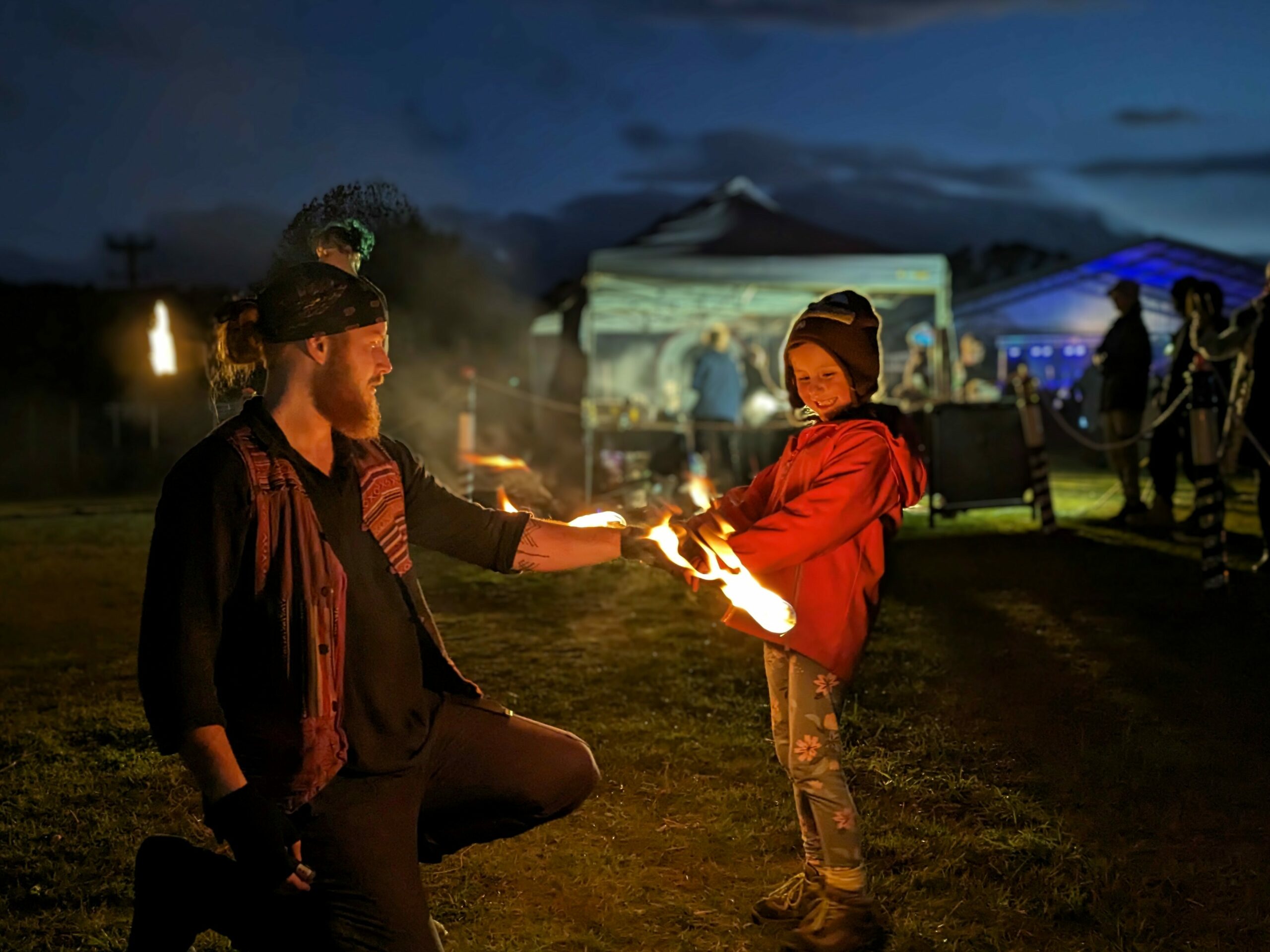
Small grants, big impact
By their very nature, small grants are simpler to navigate and have lower barriers to entry, making them more appealing to a wider range of organisations. Some grant programs, like FRRR’s Strengthening Rural Communities, also offer expert support by phone or email, making the process even easier.
Small grants can be the straightforward and friendly ‘front door’ through which grassroots organisations can step to build their capability, connect their community and navigate and drive change. In fact, for many communities experiencing disadvantage, small grants are one of the few ways that they can get the resources and opportunities to launch new ideas or approaches in their communities. And they deliver far more than just money.
Dipping a toe in, learning as they go
For communities that have not applied for funding before, small grants build their experience and confidence in developing project ideas, applying for funding, project management, budgeting and meeting reporting requirements. In the last 12 months, more than a third of Strengthening Rural Communities grant applicants (503 organisations) were first time applicants. Even if they aren’t successful the first time around, constructive feedback, such as the detailed information we always offer to unsuccessful applicants, can give them the confidence to apply again.
Biting off just what they can chew
Many communities are great at developing a long-term vision for their community that might focus on local services, economic development, environmental sustainability or climate change adaption but much as they’d like to do so, it’s simply not possible to achieve everything at once. Small grants enable a community to tackle making those big changes one project at a time. This supports them to make incremental progress against their long-term goals, while the lower scrutiny and risk associated with a small amount of funding can be less anxiety-inducing for organisations who are new to grant seeking.
Attracting more funding
Securing their first small grant is a pivotal moment for an organisation. It’s not just about funding support – it is also a recognition of the value of an organisation’s work and its ability to contribute to their community’s future. Once they’ve been successful, it’s often a catalyst for aiming higher and developing self-belief and self-reliance to create positive change in their community.
Demonstrating that they can successfully manage their first small grant and deliver tangible results builds an organisation’s credibility and can help open the door to securing larger grants to scale-up their project or take on a more ambitious idea. Often, it’s also the vote of confidence that other donors need to see to also come in and support the group’s work.
Getting to work sooner
Small grants usually have shorter application and approval timelines and offer more flexibility to enable communities to tailor projects to meet local priorities and needs, or quickly respond to unexpected disasters and other shocks. Smaller grants also usually come with fewer restrictions and reporting requirements compared to larger grants, which can often make it easier to negotiate with the funder to adapt their project if conditions change.
Finding and piloting local solutions
The flexibility of small grants also encourages communities to experiment with local problem solving, potentially sparking new approaches that are scalable or portable to other communities. Often small grants are seed funding to pilot locally generated or adopted ideas that are not of interest to larger grant programs. Using small grant funding to demonstrate the viability of a community idea can generate the evidence needed to secure larger grants or other support to bring the idea to reality.
“Thank you so much for providing the funds for this grant. This renovation has given Council initiative to support the Toy Library by maintaining the building so we can provide an inviting space and nurturing space for the community. The Toy Library has had many, many years of dedication by passionate volunteers to support and nurture the children of Tamworth and I think it deserves it!
When I started as president the library looked awful and didn’t reflect the commitment, love and pride that our small but dedicated group deserved. Now I feel like our space reflects our organisation. An important community organisation that cares and values the children, parents and carers of Tamworth and feels that learning through play is core to a child’s life and development! Another positive change is that the renovations have been a catalyst for council to complete much needed (and much requested) maintenance on the building by fixing gutters, replacing doors and cracked tiles and replacing the old sink and toilet.”
Tamworth Toy Library Incorporated
Connecting the Community
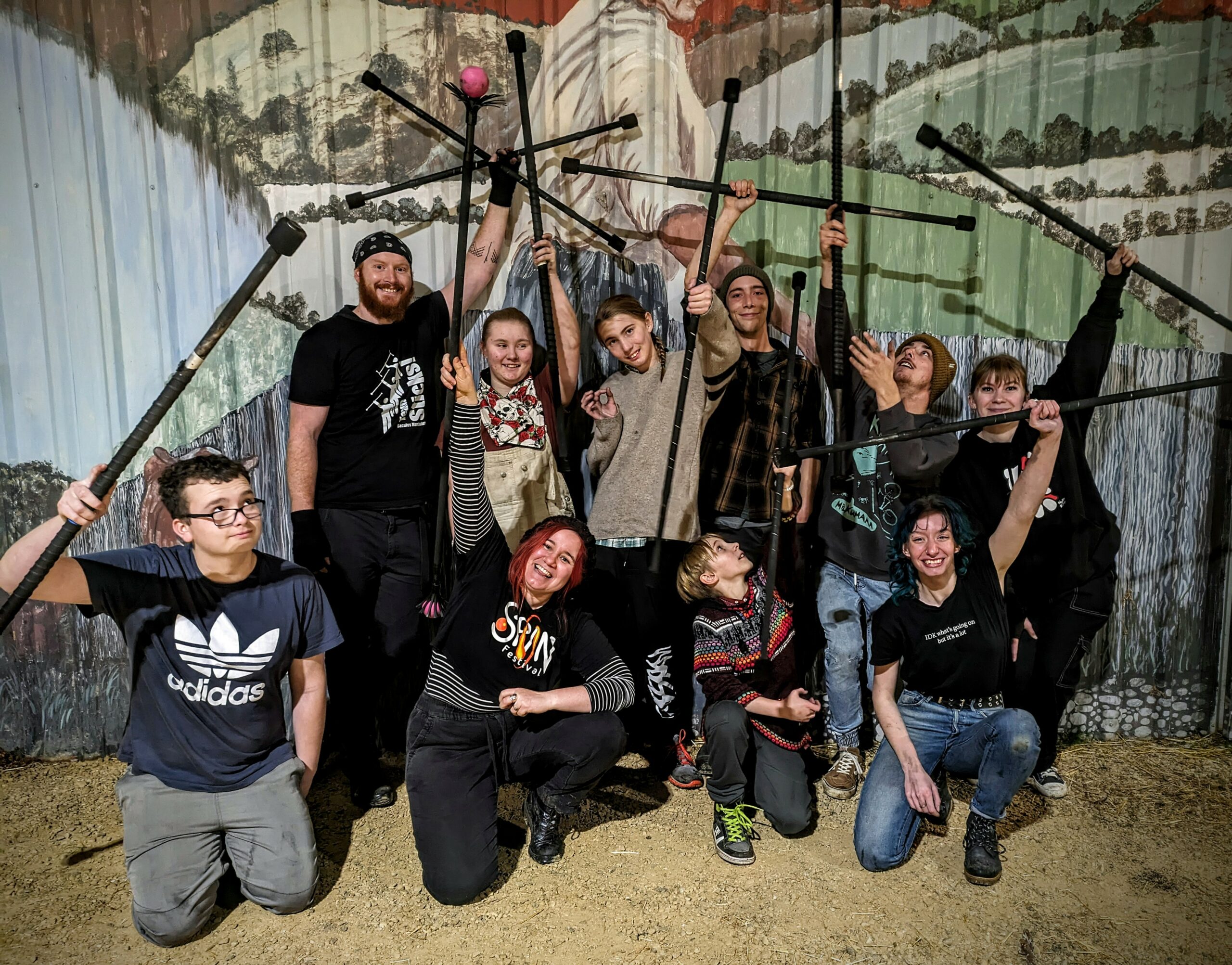
Small grants also offer a reason for different groups in the community to work together to develop and deliver projects that are meaningful and manageable. When community members, other community organisations and Local Government see the results from a small grant project that makes their community better, it is a great morale booster, and they are more likely to be motivated to get involved in future community initiatives.
“The event’s success lies in its ability to bring the community together, boost the local economy, and celebrate cultural heritage. The event provided a platform for residents to come together after the floods, share their experiences, and rebuild social connections. Through artistic workshops, events, and exhibitions, community members bonded over shared creative experiences, fostering unity and a sense of belonging.”
Arts Deloraine – festival / youth workshops (flood recovery)
Building local capacity
It’s not just the mere fact of offering smaller-value grants that makes an impact. It’s what those grants fund that also helps to build local capacity, especially in small communities or where a new group has formed. For example, many of the grants FRRR funds are about helping groups build their own capacity – whether that’s the likes of governance training or strategic planning support.
“The grant received for strategic planning has paid for itself many times over. We had members who had ideas in their head but didn’t know how to plan or implement them. Since receiving the grant, we’ve been able to increase attendance of our market to over 5000 visitors in November 2021! We’ve also been able to provide free stalls to local community groups to increase their outreach. This also has a flow on effect to small businesses in the town. The pub is booked out for lunch, little local businesses thrive due to the amazing success of the market.”
Rotary Club of Kinglake Ranges
Bigger is not always better

Often, we hear suggestions that larger grants are better – but the reality is that many of the most deserving groups in the smallest and most remote locations simply will not – or indeed simply are not able to – apply for many of those grant opportunities.
While it’s great to see larger grants made available to communities, especially through Government programs, it is critical that we not lose sight of how important small grants are in strengthening capability and capacity in remote, rural and regional communities. Small communities, as you might guess, are, well… small! This can make it hard to compete with larger communities, especially when it comes to demonstrating measures of impact which funders often ask for – small communities can’t point to economies of scale or large numbers of beneficiaries.
With fewer people to draw on, volunteers are often stretched and there are less likely to be paid resources or an experienced grant writer to chase high-value grants or manage large-scale projects. Groups often won’t apply because they don’t have the capacity to meet the reporting requirements or to manage the other governance expectations, such as the frequency of reporting or detailed probity plans. Even the prospect of managing large sums of money can be scary for a first-time grant applicant and some small communities can find it simply overwhelming!
What makes small grants so impactful in rural and remote Australia is their flexibility and relative simplicity, which means they’re more accessible and attractive to those communities that don’t have the resources to wrestle with the complexities of large grants. So we urge all those who are working so hard to grow the funds that are directed via the social sector to make sure that small grants continue to be a key stream of funding. If you’re funding large grants, consider coupling that with some smaller grant funding as well – they may well become organisations you’re able to fund in the future. Or, if you’re funding with a very tight focus, consider how small grants with more flexibility may bring unexpected pathways to that impact. Of course, we always welcome more partners for our collaboratively-funded Strengthening Rural Communities program, so get in touch if you’d like to know more.
Local community groups and not-for profit organisations in remote, rural and regional NSW are being offered grants to boost preparedness for future pandemics and other disasters.
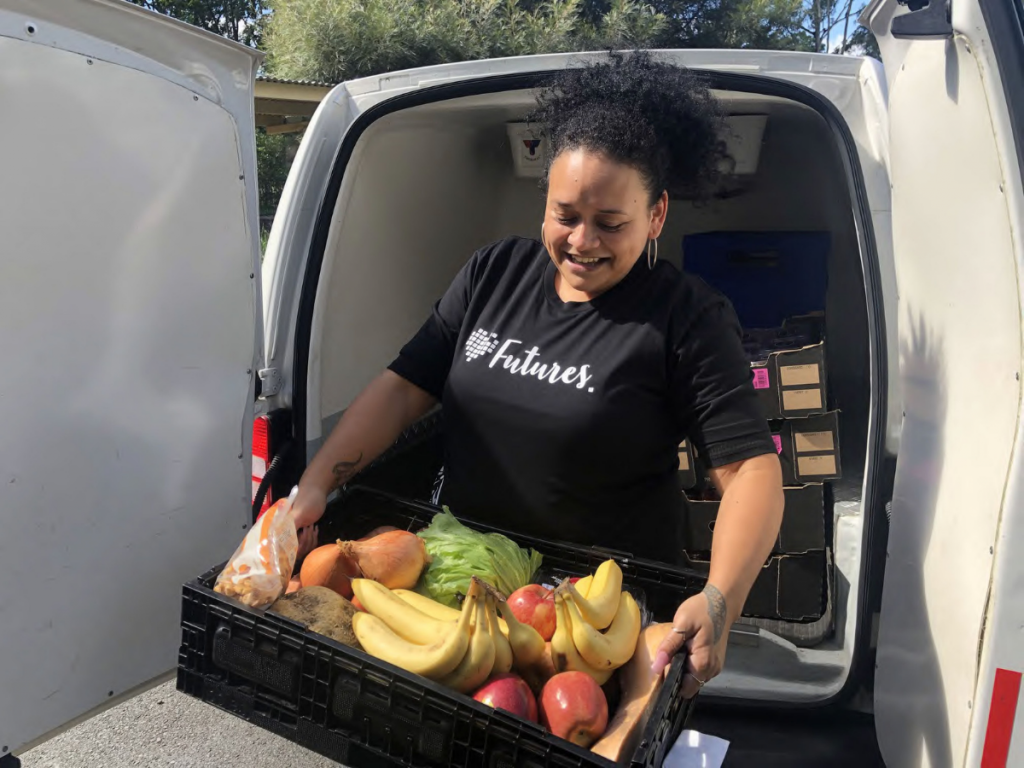
Minister for Emergency Services and Resilience and Minister for Flood Recovery Steph Cooke said the program, funded by the NSW Government, was established to strengthen groups that have played a critical role in supporting communities throughout COVID-19.
“These grants are being offered through the Resilience NSW COVID Regional Community Support (CRCS) program and are administered by the Foundation for Rural & Regional Renewal (FRRR),” Ms Cooke said.
“Grants of up to $50,000 will be awarded toward regional capacity building initiatives such as those that attract and retain volunteers and staff, train to enhance governance skills, build digital capacity and create partnerships that foster stronger, more resilient communities.”
Natalie Egleton, CEO of FRRR, said that regional organisations in NSW have gone above and beyond for their communities during the pandemic, especially when for many it was also on top of floods, fires and the mouse plague.
“Remote, rural and regional community groups and not-for-profits really stepped up in what were extraordinary times. We take our hats off to them for how they have persevered, especially in the face of so many challenges.
“The findings of our Heartbeat of Rural Australia study last year highlighted that many community groups were really fatigued and able to operate at only a fraction of their usual capacity. They were struggling to find volunteers and staff, and while many groups turned online, the digital divide that exists between urban areas and regional areas became really apparent, as did several other capacity constraints.
“This program has been designed in partnership with the NSW Government to enable community groups to address these issues and fill the gaps that became more evident during the pandemic. We know that every community is different, so it’s deliberately flexible and will support community groups to be better prepared in future,” Ms Egleton said.
To find out what can be funded through the capacity building stream, and to apply, visit https://frrr.org.au/ResNSW-Covid-Support.
Applications close 5pm AEST on Friday 29 April 2022.
And support from new IRCF Program Manager and facilitator
Seven not-for-profit organisations (NFPs) are sharing in $135,471 for projects that will strengthen the NFP sector and inter-organisational relationships in Nowra, helping the community to thrive and achieve long-term stability. Nowra NFPs will also have on-the-ground support from a new South Coast Program Manager and local facilitator.
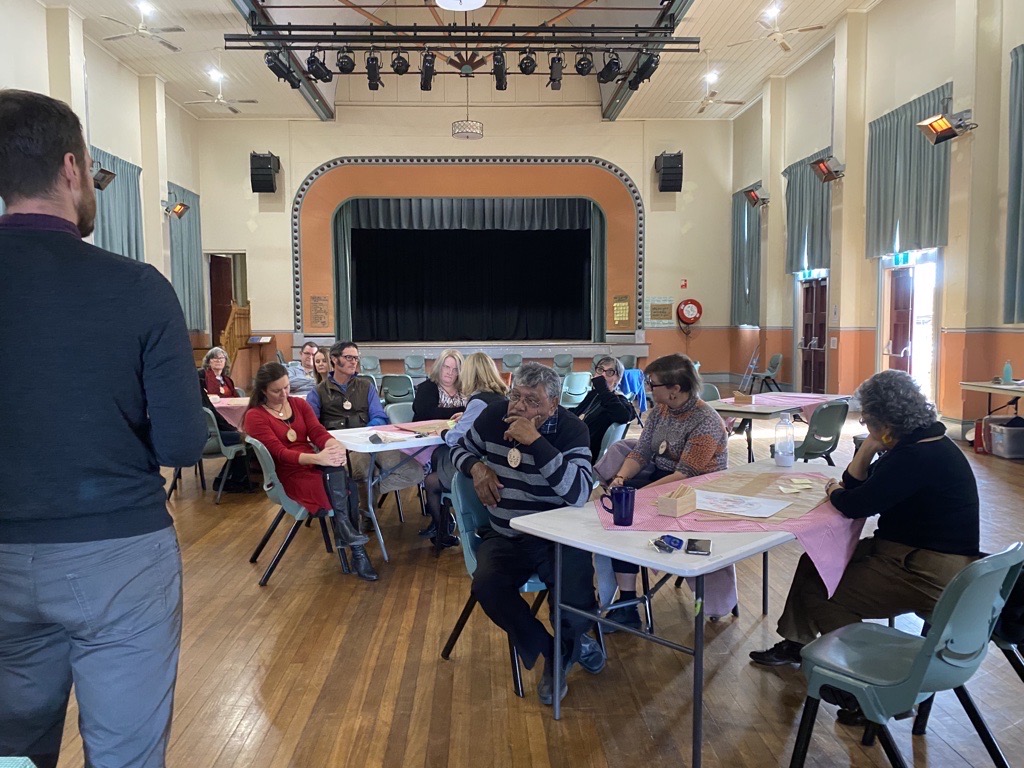
Funded through FRRR’s Investing in Rural Community Futures (IRCF) program, in partnership with The Snow Foundation, these grants will allow Nowra NFPs to properly develop the tools, resources and skills they need to achieve longevity and create permanent change in their communities.
IRCF is a multi-year grassroots program aimed at building the capacity and connectedness of NFPs in select communities in regional New South Wales. As well as grants, these recipients will receive organisational support and coordination in the form of workshops that will help them to implement more effective systems, processes and training within their organisations.
Among the seven projects funded, there is a focus on developing leadership and business skills, technological transformation, cultural immersion and community engagement. These projects address needs highlighted through a community-led Roadmap, the development of which was facilitated by FRRR.
Natalie Egleton, CEO of FRRR, said that these initiatives will have a lasting impact on the people of Nowra.
“It’s fantastic to see the not-for-profit organisations in this round of grants collaborating and learning from their peers, and successfully applying that knowledge to the unique needs and circumstances of their own communities.
“It’s wonderful to see local organisations prioritising community engagement and creating safe cultural spaces. This includes the South Coast Women’s Health & Welfare Aboriginal Corporation, which is using their funding to deliver cultural immersion sessions to 30 Nowra NFP representatives in response to vision identified in the Nowra Community Roadmap,” Ms Egleton said.
Terry Snow, Founder of The Snow Foundation, said partnering with FRRR has allowed his Foundation to have a significant impact on regional NSW areas such as Nowra.
“Having a home and running a business on the South Coast, I understand how important it is to support these not-for-profit organisations. They provide crucial support and fill gaps that help to keep these communities vibrant and self-sufficient. With the resources provided by this program, these organisations will create real change.
“A great example of this is the Nowra Community Food Store, which is using their grant to set up an E-commerce website with an option for contactless delivery, so that families in the Shoalhaven region who don’t own a car can still access fresh food.”
The five other grant recipients in the Nowra region are:
- Cullunghutti Aboriginal Child and Family Centre Aboriginal Corporation, Nowra – Laying the Foundations for the Future of Cullunghutti Aboriginal Child and Family Centre Aboriginal Corporation – Support the Centre’s future vision and rapid growth by appointing a temporary Community Centre Team Leader to support the CEO in an operational capacity. $30,000
- Nowra Sub-Branch of the Returned and Services League of Australia New South Wales Branch, Nowra – Nowra RSL Sub-Branch Upgrade Project 2021 – Accelerate digital transformation and enhance client experience through upgrades to IT equipment and furniture. $16,469
- Shoalhaven Community Preschool Inc, Nowra – The Growth Strategy Project – Strengthen the leadership capacity of the Centre during the Preschool’s relocation and expansion by providing a wage subsidy, expert consultants and professional development. $22,000
- Shoalhaven Health and Arts Inc, Bomaderry – Capacity Building for SHAA’s Future – Strengthen the capacity of SHAA to respond to community demand for their mental health, arts and events programs by paying wages for the currently volunteer-based managers. $14,112
- South Coast Beef Producers Association Inc, Nowra – Governance Training for South Coast Beef Management Committee Members – Strengthen the governance and strategic vision of South Coast Beef through the training of the management committee in governance foundations. $10,590
New IRCF Program Manager – South Coast and Nowra facilitator
Helping Nowra’s NFPs to make the most of the IRCF program is IRCF South Coast’s recently appointed Program Manager, and South Coast local, Carolyn Ardler.
Carolyn comes to FRRR and the IRCF program with extensive experience in place-based delivery to support communities to build capacity and reach their aspirations from the grassroots.
“I am excited to be working on the IRCF program as I strongly believe rural and regional communities have the solutions and strength within them to face their unique challenges. This program allows small not for profits to build their capacity and be more sustainable in the long term.” Ms Ardler said.
Carolyn steps into her new position as Kate Dezarnaulds, FRRR’s previous Program Manager for IRCF South Coast, transitions into the role of IRCF facilitator for Nowra. In this role, Kate will be able to work more directly with Nowra NFPs to connect, build relationships and work together to improve their capacity and sustainability.
In addition to Nowra, the IRCF South Coast program is also working in Batemans Bay and Ulladulla with the support of The Snow Foundation, and in Bay & Basin with the support of Bendigo Bank Community Enterprise Foundation, and in Junee, Leeton and Nambucca Valley in partnership with the Vincent Fairfax Family Foundation.
For more information about the Investing in Rural Community Futures program visit – https://frrr.org.au/ircf-program/.
FRRR has awarded another $286,318 in grants to four Leeton not-for-profit organisations (NFPs), in partnership with the Vincent Fairfax Family Foundation (VFFF). These grants will continue to build the capacity and sustainability of NFPs in the Leeton area, allowing them to better support their community.
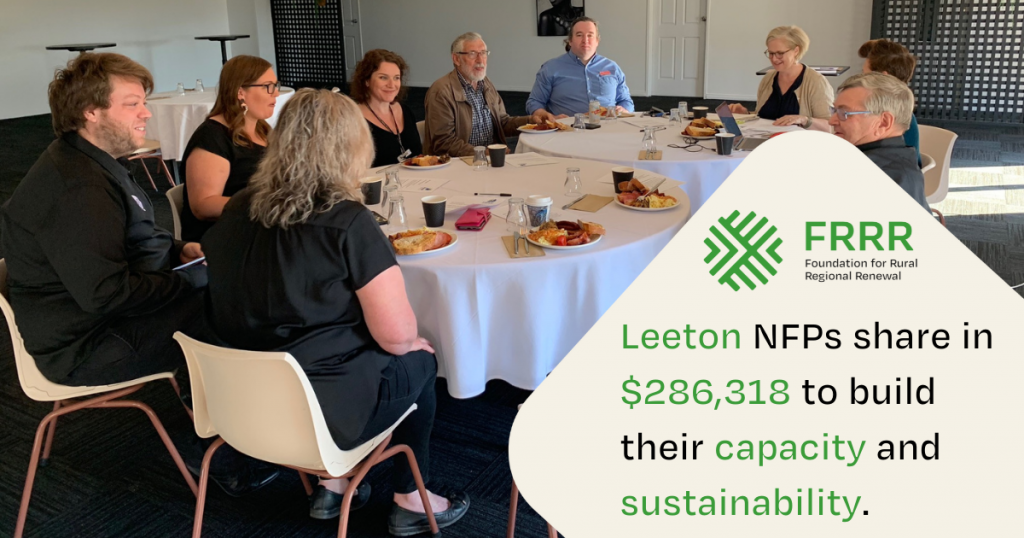
The grants are part of FRRR’s Investing in Rural Community Futures (IRCF) program – an ongoing multi-year program that works to strengthen the NFP sector and inter-organisational relationships in Leeton, helping the community to thrive and achieve long-term stability.
As part of the IRCF program, FRRR facilitated sessions with community groups to create Roadmaps to document the organisational needs that exist in the Leeton NFP community and how FRRR can support local NFPs to maximise opportunities for a stronger and sustainable NFP sector and community.
Nancy Sposato, IRCF Program Manager for Leeton, said that each of the four initiatives being funded meets a need outlined in the Leeton Roadmap.
“The applications we received confirmed what we saw in the results of the FRRR’s recent Heartbeat of Rural Australia study, which showed, overwhelmingly, that after nearly two years of constant disruptions, volunteers are fatigued. In fact, many organisations have lost their volunteers due to the impacts of COVID-19.
“This round of grants will see new and continued employment of people for Leeton NFPs, taking pressure off volunteers and allowing these organisations to continue building resilience and capacity and doing what they do best – providing vital support for their community.
“A real strength of the IRCF program is that it provides a framework for these local NFPs to collaborate and support one another while also playing to their individual strengths. We can see such a sense of community in this round of applications, with intention for almost all of the roles funded through these grant funds working from the Leeton Connect offices. This will give the broader sector much greater access to their capacity building services.
“We’re also pleased to be funding a Leeton Jumpstart Coordinator who will oversee mental health first aid training. This training will be delivered to the Leeton Jumpstart Fund assessors, as well as members of the wider NFP sector. It’s these kinds of inter-organisational initiatives that will have a widespread impact on the entire Leeton community,” said Ms Sposato.
The four funded initiatives are:
- Leeton Business Chamber – Leeton Community Digital Hub Initiative – Support the not-for-profit sector and develop, build and engage the community in a new Digital Hub for Leeton. $40,000
- Leeton Connect Inc – Leeton Continues to Connect – Build capacity of the not-for-profit sector across Leeton and develop a plan towards a secure future by continuing to employ the coordinator for Leeton Connect over a two-year period. $147,600
- Leeton Jumpstart Fund Incorporated – Leeton Jumpstart Coordinator – Build capacity in fundraising, marketing and the delivery of mental health first aid training for Jumpstart’s volunteer panel and other local NFPs dealing with crisis through the employment of a coordinator. $44,718
- Leeton Shire Council – Community Grants Support Coordinator – Help not-for-profits in Leeton apply for and strengthen their own capability to attract funding and resources by employing a Grants Support Officer. $54,000
In addition to Leeton, the IRCF program is also working in Junee and Nambucca Valley in partnership with the Vincent Fairfax Family Foundation, and in Nowra, Batemans Bay and Ulladulla with the support of The Snow Foundation, and in Bay & Basin in partnership with Bendigo Bank Community Enterprise Foundation.
For more information about the Investing in Rural Community Futures program visit – https://frrr.org.au/ircf-program/.
Local NFPs invited to join online workshop to learn about FRRR’s new capacity building grant program for Taree and Wingham
FRRR is inviting local leaders of Taree and Wingham’s not-for-profits (NFPs) and community organisations to join in an online workshop on Thursday 14 October 2021 at 11:30am AEDT to learn about the Foundation’s new grassroots program, Investing in Not-for-Profit Capacity in Regional NSW (INFPC).
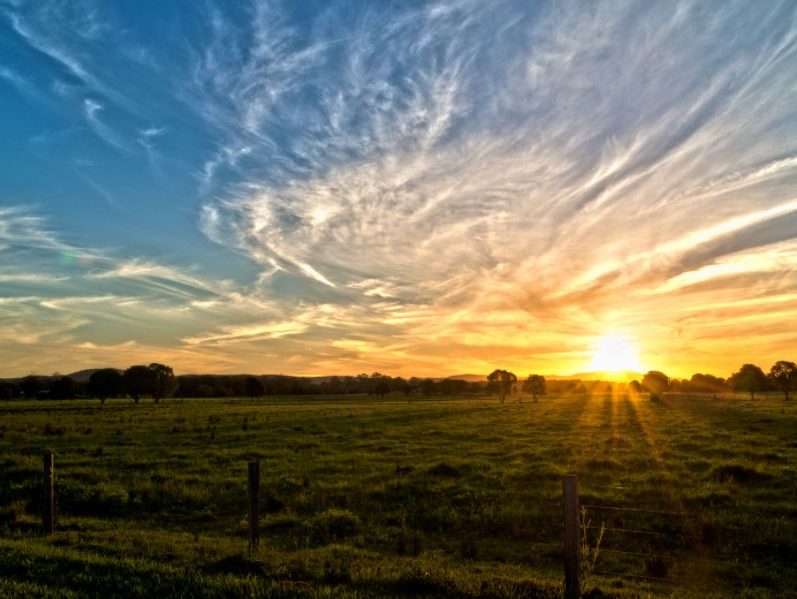
The INFPC program, which is supported by the Paul Ramsay Foundation, is a 12-month place-based program providing NFPs in three bushfire-affected regions with a capacity boost for their vital work in their communities. The program is currently underway in the Bega Valley and Glen Innes Severn, with grants already awarded to support local organisations for a range of projects including strategic planning, training, and development of systems and processes.
Through the INFPC program, FRRR will support Taree and Wingham’s NFPs and community organisations to respond and thrive in the face of current challenges. The program will include access to grant funding, workshops, skill development and networking to help create local solutions to local issues.
The workshop will introduce the program and give local community leaders the opportunity to brainstorm their key priorities and interests and identify how INFPC can support them to address these.
Natalie Egleton, CEO of FRRR, said that the program recognises the vital work of these grassroots organisations and community groups and intends to offer assistance that can add strength to the support and service they provide to the community.
“From speaking with these groups and their volunteers, we know that they are a passionate and resilient bunch. What is evident from our discussions though, is the toll that having to face successive disasters has had on their capacity to do their job,” Ms Egleton explained.
“Even before the flooding event earlier this year, local NFPs, many of which are run by volunteers, were experiencing fatigue, having already faced drought, bushfires, and COVID-19 restrictions. The need to rethink, reschedule or pivot projects to meet changing needs has added additional pressure to their ability to support their communities.
“We are grateful for their openness and willingness to share with us the very real challenges they are facing as well as their goals and aspirations for their organisations and community. We look forward to working with Taree and Wingham’s local leaders and to supporting them to develop local solutions to overcome their challenges,” Ms Egleton said.
Taree and Wingham workshop
| Who | Community-based not-for-profit organisations in Taree and Wingham |
| When | Thursday 14 October from 11:30am to 1:30pm (AEDT) |
| Where | Online workshop via Zoom – Link will be sent by email once you have registered. |
| How | Register for the workshop here: http://bit.ly/FRRR-Taree |
For more information about the Investing in Not-for-Profit Capacity in Regional NSW program visit – https://frrr.org.au/investing-in-not-for-profit-capacity-nsw/.

